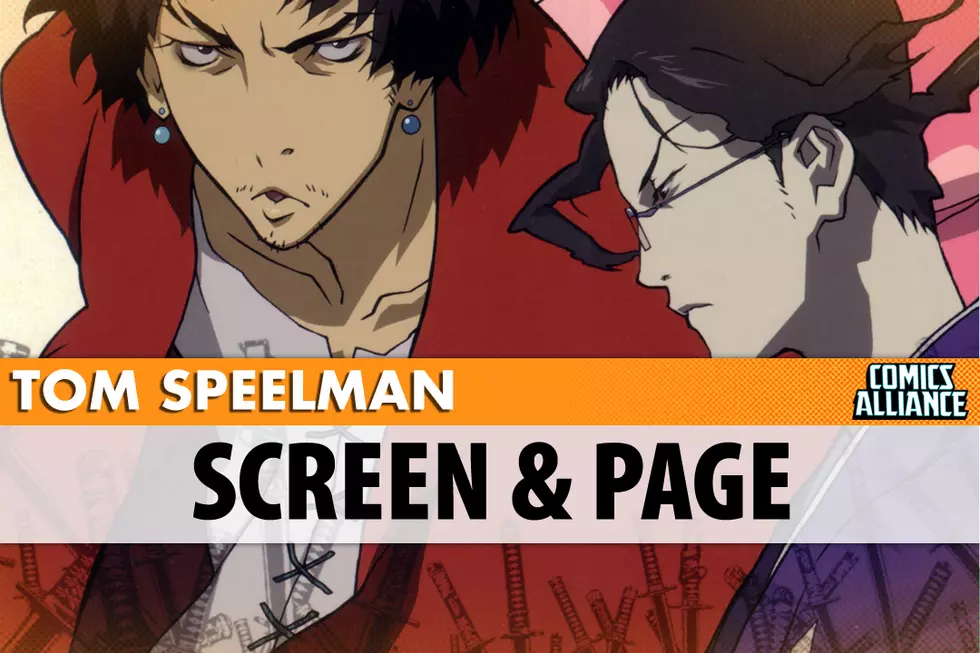
OverDrive Brings Digital Comics to Libraries… Sort Of

The reach of digital comics continues to expand, Publisher's Weekly reports, to younger readers via their traditional libraries through a service called OverDrive. Based in Cleveland, OH, OverDrive supplies 11,000 libraries across the world with eBooks, audiobooks, music and films.
Marvel Comics and Tokyopop have already made some of their material available through OverDrive, with Moonstone Books and IDW Publishing to follow suit. OverDrive's Director of Marketing David Burleigh tells PW's Todd allen that the best selling comics have been Marvel's "Iron Man Adventures" and Tokyopop's "Dramacon" Vol. 1. The service offers additional material from Marvel's "Marvel Adventures" line, which targets younger readers, and Tokyopop's over 200 titles targets the 13+ demographic.
While it's certainly a very, very good thing that comic books are getting in front of the crucial youth audience, it appears the OverDrive service remains another example of the frustrating one-step-forward, two-steps-back approach to digital distribution that ComicsAlliance's own David Brothers outlined in his recent piece on the subject. OverDrive does indeed sell digital comic books to 11,000 libraries, but it does so almost exactly as if those digital comics were printed, tangible books. According to Publisher's Weekly, libraries buy OverDrive's digital content not by the title but rather by the copy. For example, if your local library wanted to stock "Marvel Illustrated: Moby Dick" for its readers, it would have to pay OverDrive a price for each digital copy they want. Accordingly, only one person can "checkout" a digital comic at a time (the download comes with an auto-expiration date), presumably leaving people waiting around for someone to finish the e-book so they can have a turn.
This seems to miss the point of the general digital media revolution of the last 25 years or so, where digital files were innovated to put an end to the limitations of paper, which include inconveniently few copies of whatever sort of material you need. If an OverDrive e-book is sold and behaves exactly as a printed book, what advantages does it offer young comics readers? (Aside from not crumbling apart after a few voracious reads).
From PW:
Naturally, the Direct Market's competition concerns remain in play in the library space. Arune Singh, Marvel's Manager of Sales Communications, notes the titles Marvel provides OverDrive are "evergreen stories, and not tied into events or promotions going on within the regular Marvel [Universe] or our Direct Market, there isn't much concern right now and rushing out current all ages titles in any given time frame." Singh also notes that Marvel stands ready to update OverDrive's stock of Marvel material pending more data on the initiative's success.
For its part, Tokyopop released to libraries via OverDrive its "Hetalia: Axis Powers" Vol. 1 graphic novel back in August, while the print version won't go on sale until September 21.
Screenshot of an OverDrive checkout page:

"It is of paramount importance to us that we use this [service] to drive new readers into comics, and not drive comic shop buyers out of comic shops," OverDrive Senior Marketing Executive Ed Catto told PW, later adding, "Ideally, we'd see libraries with a robust catalog of comics that would be either a starting point for new comic readers, or a low-cost trial for existing readers looking to try a new title. In both cases, we'd then hope to convert readers to the physical collected TPB's/Graphic Novels or to actual comics in comic shops nationwide."
The OverDrive digital comics project is still in its early stages and the service may yet prove to be a success in turning more people, especially children and young adults, into comic book fans, which would be most welcome. But when the company's stated goal is to contort itself into something seemingly unnatural to service another distribution model, one has to feel some skepticism. As Brothers remarked in his CA piece, " If the digital effort continues to be a half-effort, the failure of digital comics will be a self-fulfilling prophecy. At some point, you need to either make your move or give up."
More From ComicsAlliance









